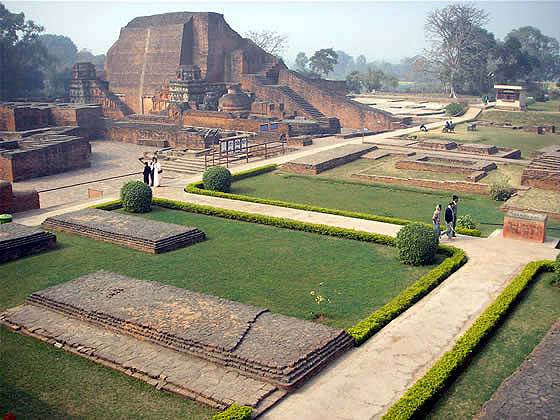
Buddhist philosophy
Buddhist philosophy is the ancient Indian philosophical system that developed within the religio-philosophical tradition of Buddhism.[2][3] It comprises all the philosophical investigations and systems of rational inquiry that developed among various schools of Buddhism in ancient India following the parinirvāṇa of Gautama Buddha (c. 5th century BCE), as well as the further developments which followed the spread of Buddhism throughout Asia.[3][4][5]
Buddhism combines both philosophical reasoning and the practice of meditation.[6] The Buddhist religion presents a multitude of Buddhist paths to liberation; with the expansion of early Buddhism from ancient India to Sri Lanka and subsequently to East Asia and Southeast Asia,[4][5] Buddhist thinkers have covered topics as varied as cosmology, ethics, epistemology, logic, metaphysics, ontology, phenomenology, the philosophy of mind, the philosophy of time, and soteriology in their analysis of these paths.[3]
Pre-sectarian Buddhism was based on empirical evidence gained by the sense organs (including the mind), and the Buddha seems to have retained a skeptical distance from certain metaphysical questions, refusing to answer them because they were not conducive to liberation but led instead to further speculation.[3][7] However he also affirmed theories with metaphysical implications, such as dependent arising, karma, and rebirth.[2]
Particular points of Buddhist philosophy have often been the subject of disputes between different schools of Buddhism,[2] as well as between representative thinkers of Buddhist schools and Hindu or Jaina philosophers.[3] These elaborations and disputes gave rise to various early Buddhist schools of Abhidharma, the Mahāyāna movement, and scholastic traditions such as Prajñāpāramitā, Sarvāstivāda, Mādhyamaka, Sautrāntika, Vaibhāṣika, Buddha-nature, Yogācāra, and more.[2][3][5] One recurrent theme in Buddhist philosophy has been the desire to find a Middle Way between philosophical views seen as extreme.[8][9]